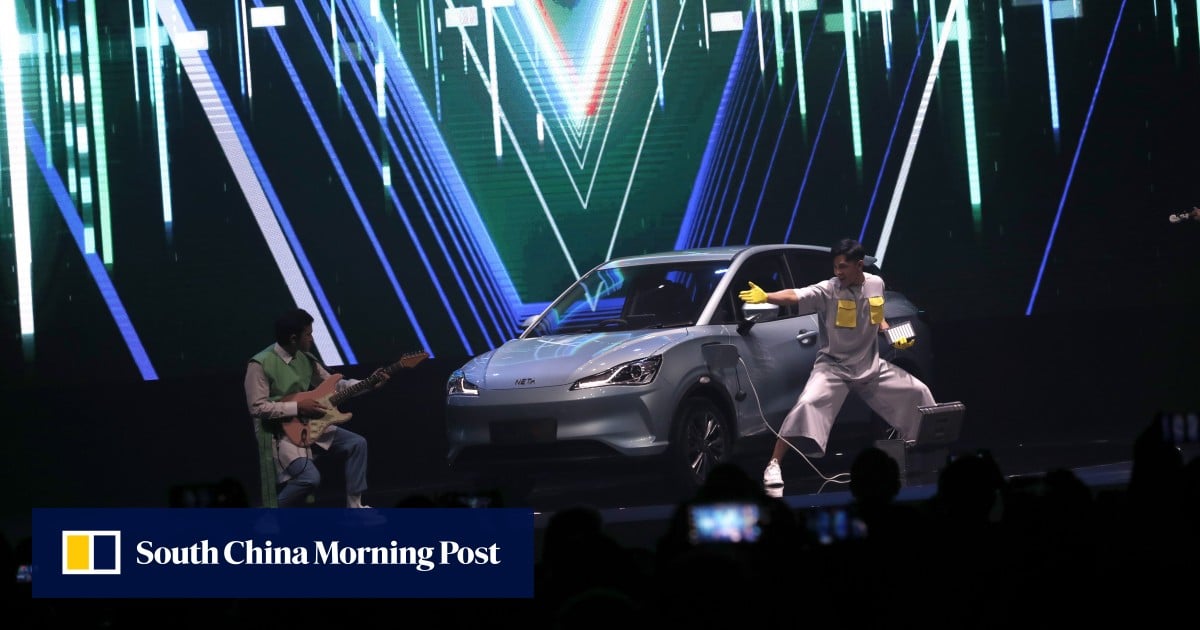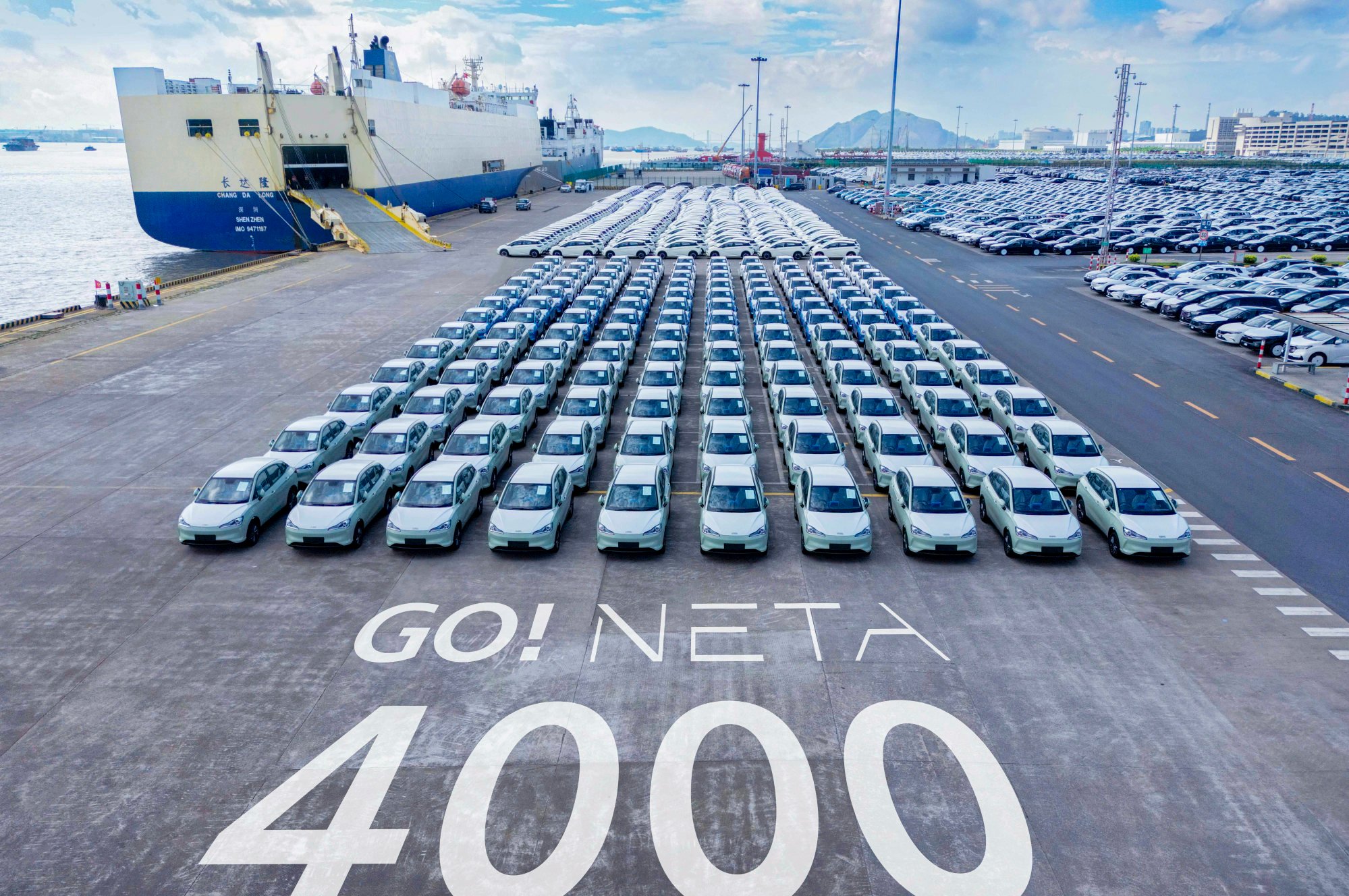
04 Jan Chinese EV maker Hozon predicts fivefold jump in overseas sales as growth slows in hyper-competitive domestic market
At that level, overseas sales would account for a third of Hozon’s total deliveries in 2024, which are likely to hit 300,000 units, he said.
“Overall, Chinese-made electric cars are well received by customers around the world,” he said in a media briefing on Thursday. “Moreover, we are confident of our company’s global perspective with the goal of designing and manufacturing EVs for all the people.”

At the end of November, Hozon, also known as Neta Auto, started assembling vehicles at its first overseas factory in Thailand, about two months ahead of schedule. The plant, with an annual capacity of 20,000 units, produces right-hand-drive versions of Neta vehicles.
Hozon’s second assembly facility outside China will be operational by the second quarter, Zhou said.
“Owing to a slowing domestic market, Chinese EV makers whose brands and vehicles can attract foreign buyers will step up their overseas expansion in the coming years,” said Eric Han, a senior manager at Suolei, an advisory firm in Shanghai. “Indeed, they enjoy a higher profit margin in other markets because of price competition at home.”
Short sellers target BYD, world’s top EV maker, as rivalry intensifies
Short sellers target BYD, world’s top EV maker, as rivalry intensifies
Neta is a variation of the name Nezha, a protection deity in Chinese mythology. The brand falls into the category of budget EVs in China, aimed at middle- and low-income drivers who prefer battery-powered vehicles to cars powered by petrol-guzzling internal combustion engines.
China EVs: Xpeng and Li Auto roll out minivan models with focus on rich buyers
China EVs: Xpeng and Li Auto roll out minivan models with focus on rich buyers
Hozon delivered a total of 127,496 vehicles to domestic and overseas customers in 2023, down 16 per cent year on year.
Crossover financing typically gives a start-up more time and capital to develop its business before an initial public offering (IPO). Investors normally close cross-financing deals at a discounted price while gaining a foothold in the prospective IPO.
China’s BYD overtakes Tesla as largest maker of pure-electric vehicles
China’s BYD overtakes Tesla as largest maker of pure-electric vehicles
Hozon reported a net loss of 6.9 billion yuan in 2022, 138 per cent wider than a 2.9 billion yuan loss in the previous year, according to the annual report of 360 Security Technology, one of the EV company’s investors.
Zhou said the carmaker targets total sales of 1 million EVs in 2026, including 400,000 outside mainland China. It also plans to build plants in markets like the Middle East, Africa and South America, he said.
